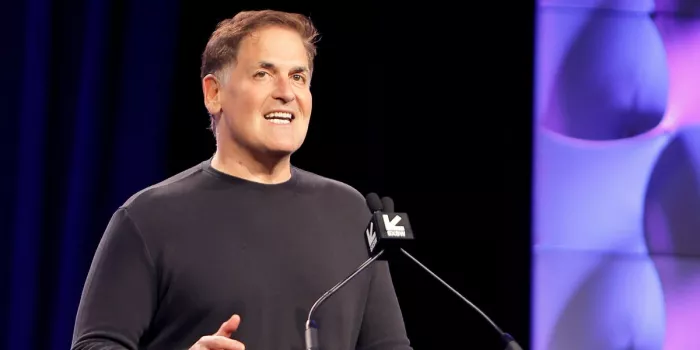
In an unexpected turn, billionaire entrepreneur and investor Mark Cuban has reportedly commended former President Donald Trump's administration for its handling of complex trade relations with China, specifically concerning the lucrative semiconductor industry. Cuban's surprising endorsement centers on a particular agreement where tech titans like Nvidia and AMD are expected to remit a significant portion—reportedly 15%—of their China chip sales revenues to the U.S. government.
This development, which sees a direct share of profits from the world's leading chipmakers flowing into federal coffers, has been described by Cuban as the 'ULTIMATE wealth tax.' His comments underscore a significant shift in how the U.S. government is engaging with its most valuable tech companies, particularly those at the forefront of the artificial intelligence (AI) revolution.
Understanding the Trump China Chip Policy Impact
The reported agreement with Nvidia and AMD highlights the intricate balance of power and economic strategy at play in the global tech arena. For years, the U.S. has expressed concerns over intellectual property theft, national security, and fair trade practices with China. The semiconductor sector, vital for everything from consumer electronics to advanced military applications and cutting-edge AI development, has been a central point of contention.
Under the Trump administration, a series of tariffs and export controls were implemented, aiming to curb China's technological advancements and secure American interests. This specific arrangement, requiring a direct revenue share from Nvidia and AMD's significant China operations, represents a unique and potent mechanism. It's not merely a tariff on goods but a direct claim on sales revenue, effectively turning a portion of these companies' international profits into a domestic government intake.
From Mark Cuban's perspective, labeling this as an 'ultimate wealth tax' is telling. It suggests that while such measures might be seen by some as restrictive or even punitive for the companies involved, they also ensure that the U.S. government directly benefits from the immense wealth generated by these global tech powerhouses. This approach could be viewed as a means to fund domestic initiatives, reduce national debt, or invest in future technological competitiveness, all while exerting economic leverage.
Implications for the AI Chip Trade War
The semiconductor industry is the backbone of the AI era. Companies like Nvidia, with their advanced GPUs, are indispensable for training and deploying AI models. The U.S. government's actions, therefore, have profound implications for the global AI landscape and the ongoing 'AI chip trade war.' By claiming a share of Nvidia's China sales, Washington is not just affecting immediate profits but also signaling its resolve to control the flow of critical technology and its associated revenues.
This policy could set a precedent for how the U.S. interacts with other tech giants operating in sensitive foreign markets. It raises questions about corporate autonomy, international trade agreements, and the future of global supply chains. For a tech-savvy audience, understanding this nuance is crucial, as it directly impacts the financial health of the companies they invest in and the geopolitical stability that underpins technological innovation.
Mark Cuban's comments, particularly his praise for what some might consider an aggressive economic policy, offer a fresh perspective. It indicates that even from a capitalist's viewpoint, there might be strategic value in such direct fiscal interventions when national interests and technological supremacy are at stake. The debate around these policies will undoubtedly continue, shaping the future of U.S.-China relations and the global technology sector.


Comments